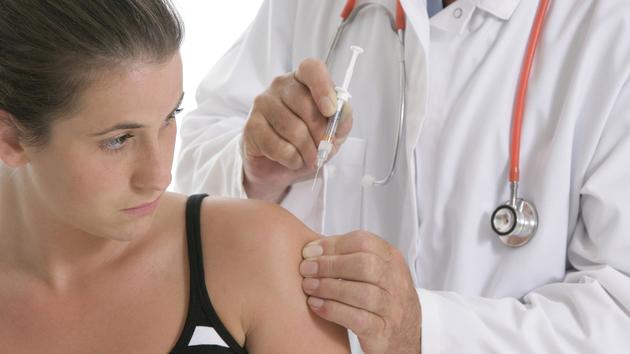Never harmless, seasonal flu is even less so in pregnant women, immunocompromised because of their condition, for which the consequences can be dramatic. "The flu can be much more serious, breathing difficulties take proportions that are difficult to control, and respiratory failure of the mother can have consequences on the fetus, says Professor Yves Ville, obstetrician gynecologist (Necker-Enfants Malades Hospital, Paris ). But it’s a huge challenge to convince women to get vaccinated, when the vaccine is completely safe and protects women from high fever and the risk of pneumonia. ”
Read also: Influenza: towards more effective vaccines, without stinging, or universal
The specialist recalls that it is not too late to guard against the annual epidemic. There is no blood transmission of the virus to the fetus. "But the mother's fever can cause obstetric complications, prematurity or even death in utero, and some women find themselves in intensive care for a simple flu, warns Professor Olivier Picone, obstetrician gynecologist (CHU Louis-Mourier, doves). Vaccination protects the mother against severe forms, and the antibodies she makes then pass into the child and protect him. ”
Insufficient coverage
Vaccination coverage for pregnant women against the flu, officially recommended since 2012, is still only 7.4% in France, compared to 54% in the United States, 45% in Belgium, 42% in Great Britain… Published in November 2019, a study by Alexandre Descamps and Béatrice Blondel (Epopé, Inserm, Paris) shows that this vaccination was only offered by a health professional to 25% of women, and that, among these, 70 % refused. However, women get more vaccinations when this advice comes from their general practitioner. According to Béatrice Blondel, "the main professionals responsible for prenatal care, gynecologists-obstetricians and midwives, have not taken up this question" .
Refusal of vaccination is higher in women under 25, who have already given birth, or with a low level of education, than in those whose first pregnancy is, those aged 30-35, having a higher level of qualification or a professional activity, especially in the health field.
Vaccination protects the mother against serious forms, and the antibodies she makes then pass into the child and protect him
Olivier Picone, obstetrician gynecologistThe reluctance against vaccination was fueled by the controversies arising from the vaccination campaign around the influenza A (H1N1) pandemic of 2009, and more generally by the general skepticism and certain health professionals on the efficacy and safety of influenza vaccine. A pernicious speech among women ill-informed about its safety and the risks that a flu during pregnancy poses both to themselves and to their young. The current campaign, which highlights the importance of influenza vaccination for pregnant women, may make a difference.









